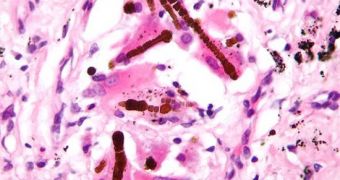A new study conducted on unsuspecting lab mice proves yet again that nicotine itself has no effect on the growth of cancer tumors in the lung. The chemical, in moderate concentrations, does not boost growth or favor it in any way, experts say.
Researchers analyzed tumors in mice, after the animals were regularly administered nicotine in roughly the same concentrations as those found in standard replacement therapies applied to smokers.
The incidence of lung cancer tumors was found to remain constant throughout the studies. The frequency at which new tumors appeared, or the sizes they had, were also determined to elude the influence of nicotine.
Details of the new investigation were presented at the 102nd annual meeting of the American Association for Cancer Research (AACR 2011). The conference is being held between April 2-6, in Orlando, Florida.
“If you take our data and combine it with epidemiological data from Europe, even in people who quit smoking and maintain the use of nicotine replacement therapy for months or years, there does not appear to be increased lung cancer incidence,” explains Phillip A. Dennis, MD, PhD.
The expert holds an appointment as a senior investigator with the medical oncology branch of the National Cancer Institute (NCI). “This suggests that nicotine replacement therapy is probably safe and is certainly safer than smoking,” he goes on to say.
Dennis explains that roughly 20 percent of all smokers out there are addicted to tobacco in the strictest sense of the word. In most of these hardcore smokers, the use of nicotine replacement therapies has been proven effective again and again.
The expert adds that there are some smokers who conceivably need to stay on nicotine patches, for example, for longer than the standard, 10 to 12 week, period the US Food and Drug Administration (FDA) approves.
What the results of the new work show is that this should have no influence on people's chances of developing lung cancer. In the mouse study, “nicotine did not increase tumor incidence, multiplicity or size,” Dennis explains.
“Based on our study and human epidemiological studies to date, nicotine replacement therapy is probably a safe option,” he concludes.

 14 DAY TRIAL //
14 DAY TRIAL //